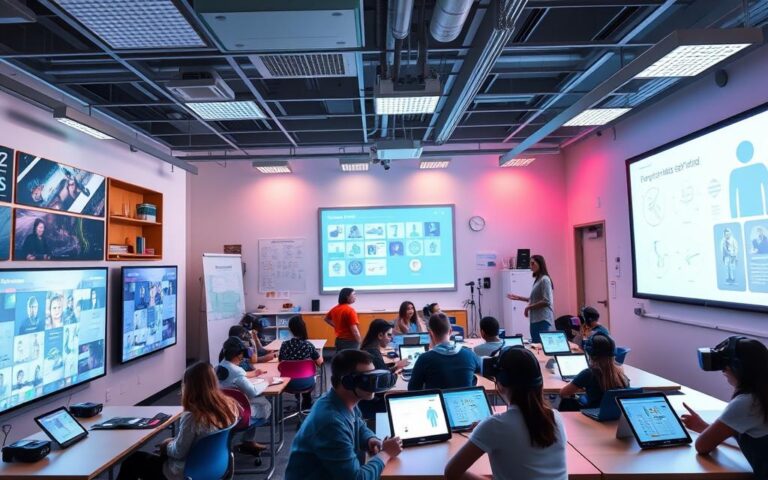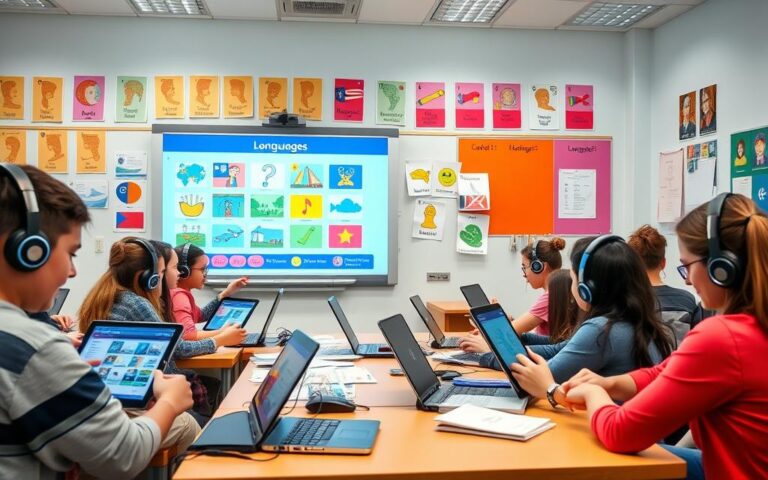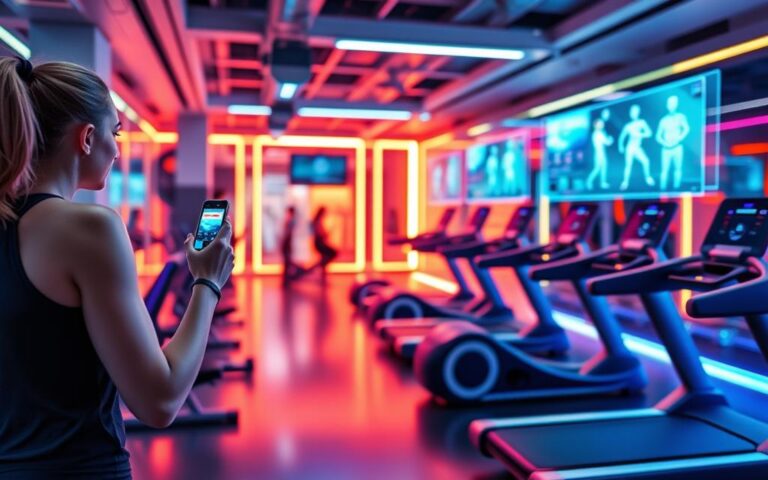Examining the Negative Impacts of Technology
In our digital world, it’s hard to overlook the downsides of technology. While it connects us and makes life easier, there are risks too. These risks can affect our health and happiness. This piece looks at how too much screen time can hurt our bodies, minds, and social lives. For example, a study from 2017 found heavy social media users felt lonelier than others. This fact shows why we need to think about how tech affects us.
Kids using gadgets can also face problems. They might learn to talk later, not do well in school, and struggle to focus. Experts like the American Academy of Pediatrics say very young children should not use screens at all. This advice points to growing worries about tech’s impact on kids. Moving forward, we’ll explore more about technology’s benefits and its downsides, which deserve our attention.
Introduction to the Dangers of Technology
Technology changes how we interact, bringing benefits but also risks. It affects our mental and physical health. Many studies show a link between too much technology and health problems.
A study from the University of Michigan found that using Facebook can make people less happy. Research from the University of Gothenburg shows that using phones a lot can lead to depression in young people. These find are worrying because they show how social media can harm our feelings.
About four in every five teenagers keep their mobile phones in their rooms at night. This habit connects their online activity directly to their mental health. A study found that using social media a lot can make people feel isolated. People who use it more often are more likely to feel lonely than those who don’t.
The CDC has reported more ADHD diagnoses, linking it to too much technology use. This suggests technology isn’t just changing our personal lives but society as a whole. It’s important to look closely at these health and social problems. We should think about how we can use our devices more wisely to reduce these technology risks.
Physical Health Issues Linked to Technology Use
Technology is everywhere in our daily lives. It can cause various physical health issues. Spending too much time on screens leads to physical problems that can affect our health. It’s important to know about these problems to avoid them.
Digital Eye Strain
Digital eyestrain is a big problem from too much screen use. It can cause blurry vision, dry eyes, and headaches. These issues happen after looking at screens for too long. This is especially true in poor lighting or when you’re sitting badly. Taking breaks and making sure your screen is at the right height can help.
Impact on Posture
Using technology a lot can lead to technology posture problems. ‘Text neck’ happens when you bend forward to see your screen. This causes neck and back pain. To avoid this, keep a good posture and use furniture that supports your body well.
Sedentary Lifestyle and Obesity
Being inactive and using technology a lot are linked. More screen time means higher chances of getting obese, in both kids and adults. Sitting for too long can make this worse. To combat this, kids should only use screens for two hours a day max. Adults should move regularly too. For tips on beating the downsides of technology, check out these strategies to reduce these physical health issues.
Mental Health Consequences of Overuse
Technology’s rise deeply affects our mental health, causing more anxiety and depression. Studies show that too much social media can make young adults feel more depressed. Since 2010, there’s been a rise in sad feelings and suicide rates among teens, linked to more screen time. These mental health technology effects show we need to take action.
Increased Anxiety and Depression
Being always online can make people feel really anxious or depressed. Heavy social media use can lead to loneliness. Interestingly, 73% of heavy users feel lonely compared to 52% of light users. This fact tells us that more online time doesn’t mean better friendships. It can actually make us feel more alone.
Technology Addiction
Many worry about their strong need for technology. Around 70% of adults are anxious about losing their phones. This shows a dependency that’s bad for our mental health. Behaviors like always checking social media or answering work emails late hint at a problem. We need to tackle these habits to protect our mental well-being.
Attention Deficits and Reduced Concentration
Digital distractions are causing us to lose focus. Research found our attention span dropped from 12 to just 8 seconds lately. This hurts our work and learning because device distractions stop us from concentrating. Setting screen time limits and having device-free time before bed could improve focus.

| Impact of Technology on Mental Health | Statistic |
|---|---|
| Percentage of heavy social media users feeling lonely | 73% |
| Percentage of adults concerned about losing their phone | 70% |
| Average daily mobile phone usage | 3 hours 43 minutes |
| Increase in depression risk for every 10% rise in negative social media interactions | 20% |
| Percentage of teenagers experiencing cyberbullying | 59% |
| Average time spent on screens by Americans per day (2018) | 10 hours 39 minutes |
Social Implications of Technology Overuse
Technology and social media radically changed how we connect. But they have also brought several issues. Sites like Facebook and Twitter aim to help us build relations. Yet, they might lead to increased loneliness.
Although these platforms link us over distances, they could foster weak connections. This might make online isolation a growing concern.
Social Isolation from Online Interactions
Digital communication has caused worries about our social abilities, especially in the young. Kids and teens might struggle in real social settings due to their reliance on screens. This reliance could weaken their real-life conversation skills.
Online talks can’t replace the depth found in face-to-face meetings. They lack the intimacy real interactions provide.
Effects on Social Skills
Online anonymity erodes important social skills. It lets users share thoughts without holding back, which can harm civil conversations. This often leads to aggressive online behaviour and trolling.
This trend impacts how we communicate with respect, causing conflicts. It creates barriers to the beneficial social exchanges found offline.
Civil Discourse and Behavioural Changes
For healthy social lives, balancing online and real interactions is key. The negative effects of too much tech highlight the need for change. Promoting in-person chats and active community roles can boost our social abilities.
Being aware of how we behave online can lead to better respect in all interactions. It enriches our connections, both online and offline.
FAQ
What are the negative impacts of technology on health?
Technology’s effects on health include digital eyestrain, leading to blurred vision and dry eyes. This results from long periods spent staring at screens. It can also cause “text neck,” which is neck and back pain from poor posture.
Besides these issues, more screen time is linked to higher obesity rates. This is due to people being less active.
How does technology overuse affect mental health?
Overusing technology can hurt mental health. For young adults, heavy use of social media can increase anxiety and depression. Additionally, being addicted to technology can stress the brain.
This may lower mental well-being and shorten attention spans.
Can excessive technology use impact children’s development?
Too much technology can harm children’s growth. It might stop them from learning important social skills. This is because they don’t practice talking face-to-face as much.
Also, too much social media can make them feel lonely. This is ironic since these platforms aim to connect people.
What are some strategies to mitigate the negative effects of technology?
To reduce tech’s bad effects, take breaks often. Use good posture to avoid “text neck.” Also, limit how much you depend on digital devices.
Try to have real-life chats along with online ones. This helps keep social skills sharp.
How does technology affect civil discourse?
Technology can make civil conversations worse by allowing people to hide who they are. This can lead to mean or rude comments. It’s important to balance talking online with face-to-face discussions.









